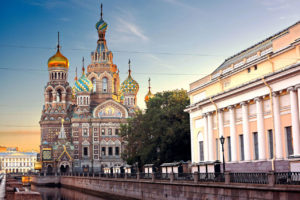Immigration update for AMER, APAC and EMEA regions
Americas
Brazil: Extension deadline for immigration regularization
The deadline for obtaining / registering for a residence permit, and temporary visa has been extended. This is relevant for foreigners whose migratory documentation was expired as of March 16, 2020 and has now been extended until September 15, 2022.
Immigrants who regularize their migratory situation within the established period will not be penalized. This is applicable for those who were unable to schedule an appointment due to restrictions forced by the pandemic, provided that the immigrants have maintained residence in the national territory and seek to regularize themselves until September 15, 2022.
This summary was prepared using information obtained from the Diário Oficial da União (in Portuguese).
Disclaimer: The above information is provided for general information purposes only and should not be construed as legal advice. If you have any further inquiries regarding the applicability of this information, please contact Roberta Carnaccini, Global Operations Director, Immigration.
Asia-Pacific
Malaysia: Border reopening
With the border re-opening on April 1, 2022, below is the general protocol that should be followed for travel from this date:
Guidance for entry to Malaysia:
Pre-departure:
- Download, register and activate the MySejahtera app on a mobile device
- Fill in the traveling declaration including vaccination information in the MySejahtera app
- Report and upload RT-PCR test results taken two days before departure in the MySejahtera app. This is exempted for children below six years old. For travelers who have been infected within six to 60 days, they are required to report and upload RTG Antigen test results taken two days before departure
- Foreign travelers are required to:
- Have insurance (Covid-19 coverage and travel insurance)
- To provide proof of accommodation in Malaysia (booking confirmation)
- Upon completing the traveler section in the MySejahtera app, the following will be displayed in the app:
- Travelers card for fully vaccinated travelers
- Home surveillance order for travelers without / incomplete vaccination (five days’ worth)
Entry to Malaysia will be denied if these criteria are not met.
After entering Malaysia within 24 hours:
- Undertake an RTK-Ag test at any clinic or health facility within 24 hours of arrival
- The result will be updated in the MySejahtera app
- Negative result – no quarantine
- Positive result – home quarantine and observation
Traveling between Malaysia and Singapore: Both countries have agreed to open the border.
Traveling by air:
Fully vaccinated travelers can cross the border without quarantine. However, a pre-departure test is still required two days before departure
Traveling by land:
Fully vaccinated travelers can cross border without:
- Quarantine
- Covid-19 pre-departure test
- Covid-19 arrival test
Traveling between Malaysia and Thailand (by land): The only entry points open for travelers are at Bukit Kayu Hitam-Sadao and Wang Kelian-Wang Prachan. Thailand is only accepting travelers for social / tourism reasons.
Vaccination:
Malaysia accepts all vaccines listed and approved by WHO. On top of this, the following vaccines are also accepted by Malaysia:
- Zifivax (China / Indonesia / Pakistan)
- Minhai (China / Indonesia)
- CoviVac (Cambodia / Russia)
This summary was prepared using information obtained from Straits Times.
Philippines: Revised travel guidelines and restrictions
From April 1, 2022, foreign nationals can enter the Philippines without the need for an Entry Exemption Document (EED) provided they comply with the applicable visa requirements and immigration entry and departure formalities which is available here.
Foreign Nationals with Existing EED:
Foreign nationals with valid and subsisting EED issued before April 1, 2022, shall be allowed entry according to Section C of IATF Resolution 160-B below:
- Fully vaccinated against Covid-19. Children below twelve traveling with their fully vaccinated foreign parent/s are exempt.
- Proof of vaccination.
- Present a negative RT-PCR test taken 48 hours before the date / time of departure from the country of origin / first port of embarkation.
- Passport valid for at least six months with valid 9A visa and EED.
Beginning April 1, 2022, interim applications for visa insurance shall no longer be applied.
This summary was prepared using information obtained from the Republic of Philippines (available in English).
Singapore: Updated border measures
The Singapore Ministry of Health (MOH) has simplified the classification and border measures by launching the Vaccinated Travel Framework for all travelers including Short Term Visitors for entry to Singapore from March 31, 2022. All countries currently sit under the General Travel category. More information on these classifications can be found here.
The entry requirements for designated Vaccinated Travel Lane transportation is no longer required. Travelers are still required to complete the Pre-Departure Test for arrivals by air and sea within two days of departure to Singapore. They will no longer be required for a Stay Home Notice, nor undergo an unsupervised Antigen Rapid Test after arriving in Singapore.
Summary of the current border measures can be found here.
This summary was prepared using information obtained from the Government of Singapore (available in English).
Disclaimer: The above information is provided for general information purposes only and should not be construed as legal advice. If you have any further inquiries regarding the applicability of this information, please contact Debra Jane Beynon, Regional Immigration Manager (APAC).
Europe, Middle East and Africa
Russia: Visa suspension
Due to the current crisis with Ukraine and Russia, some EU countries suspended visas for Russian nationals:
- Czech Republic: Suspension of Golden Visa program for Russian citizens until further notice.
- Greece: Suspension of Golden Visa program for Russian nationals and residence permits for Russian business executives until further notice.
- Poland: Suspension of visa issuance to Russian foreign nationals.
- Spain: Golden Visa program for Russian citizens is suspended.
This summary was prepared using information obtained from the Government of the Czech Republic (in Czech), Ministry of Migration and Asylum (in Greek) Schengen Visa News and Spanish News Today.
Ukraine: EU supports Ukraine – updated
Following our last update, more countries are now providing Ukrainian citizens with immediate support.
Bulgaria: Ukrainian citizens can enter and stay in Bulgaria with Biometric passports for up to 90 days in 180 days rolling period. They also enter Bulgaria if they have an old passport format without biometric data, ID card, driving license, or a birth certificate for children up to 14 years of age. It is also possible for Ukrainian nationals to enter the country without any documents once the Border Police have completed an inspection.
More information on Bulgaria’s support for Ukrainian citizens can be found here.
France: Ukrainian citizens can enter France with a Passport, ID document, or birth certificate for 90 days in a 180-day period. Those entering without a biometric passport have to visit a prefecture to get a temporary document.
More information on France’s support for Ukrainian citizens can be found here.
Greece: Holders of a Ukrainian biometric passport may enter Greece through all entry points. If they have a non-biometric passport, they may enter with a transit visa. Ukrainian citizens with no valid identification documents may only enter from the Passport Control in Promahonas, where they will be issued a document that will allow them to stay for a maximum of 90 days in the country.
More information on Greece’s support for Ukrainian citizens can be found here (in Greek).
Moldova: Adults require a regular passport or national ID card (expired passports/ national ID cards are also accepted) and Children need a birth certificate, or either (a) domestic ID or (b) an international travel passport. The permitted length of stay is 90 days in a 180-day period.
More information on Moldova’s support for Ukrainian citizens can be found here (in Russian).
Poland: Individuals require a regular passport, ID documents, or birth certificate. If an individual does not have any form of identification, they can enter for 90 days in a 180-day period (across Schengen).
More information on Poland’s support for Ukrainian citizens can be found here (in Polish).
Spain: Citizens of Ukraine can enter with a Passport, ID card, or birth certificate and may remain in Spanish territory and receive the social aid managed by the Ministry of Inclusion, Social Security, and Migration provided in case of mass influx.
More information on Spain’s support for Ukrainian citizens can be found here (in Spanish).
Sweden: With a Biometric passport Ukrainian citizens may stay for 90 days in a 180-day period. Those entering without Biometric passport will need to visit the Migration Agency for registration.
More information on Sweden’s support for Ukrainian citizens can be found here.
Turkey: Ukrainian nationals holding ordinary, diplomatic, and official / service passports are exempted from visas for their travels for up to 90 days. Citizens of Ukraine may also use their valid biometric identity cards during their travel to Turkey.
More information on Turkey’s support for Ukrainian citizens can be found here.
United Kingdom: Changes to the Immigration work visas
The government has announced various changes to the U.K. Immigration Rules in the statement of changes, including the launch of the new Global Business Mobility routes, high potential Individual routes, and the scale-up routes.
The changes listed below will be in effect from April 11, 2022.
- The introduction of the new Global Business Mobility routes:
- Graduate Trainee: Replacing the Intra-Company Graduate Trainee route; for workers on a graduate training course with work placement in the U.K.
- Secondment Worker: A new route for overseas workers who are in the U.K. as part of a high value contract or investment by their employer overseas. No minimum salary requirement and permission can be issued up to one year, extended to a maximum of two years.
- Senior or Specialist Worker: Replacing the Intra-Company Transfer route; 12 months prior overseas employment required (unless high earner). Minimum salary £42,400 (high earner £73,900) or going rate if higher.
- Service Supplier: For “contractual service suppliers” and “self-employed independent professionals” based overseas who undertake an assignment in the UK by virtue of an international trade commitment. Replacing the contractual service supplier and independent professional provisions in the Temporary Worker – International Agreement route.
- K. Expansion Worker: Replacing the Sole Representative provisions in the Representative of an Overseas Business route. For businesses wishing to expand to the UK (not yet trading in the UK) with an initial leave of up to one year, that can be extended to a maximum of two years.
- The introduction of the new High Potential Individual (HPI) route, will allow graduates from non-UK universities listed as top 50 on at least two ranking systems (the Times Higher Education World University Rankings, the Quacquarelli Symonds World University Rankings, or The Academic Ranking of World Universities) to come unsponsored for two years. This is applicable if they hold a qualification awarded in the five years prior to the date of application that is equivalent to a UK Bachelor’s or Master’s level degree, or three years if they hold a qualification equivalent to a UK PhD. This route goes live on May 30, 2022.
- The introduction of a new Scale-up route, which follows the commitment to “introduce an elite points-based route to attract the brightest and best to the UK to maintain UK’s status as a leading international hub for emerging technologies”.
These changes will be implemented between April 11, 2022, and August 22, 2022.
This summary was prepared using information obtained from Gov.uk (available in English).
Disclaimer: The above information is provided for general information purposes only and should not be construed as legal advice. If you have any further inquiries regarding the applicability of this information, please contact Laxmi Vikraman, Regional Immigration Manager (EMEA).
We track policy changes in over 120 countries. Find out how we can help you in this short video.



